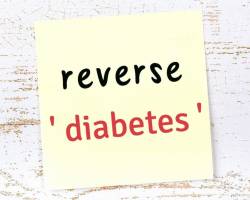ITG Diet Blog
The ITG Diet blog delivers informative weight loss tips, health resources and nutritional information to help you along your weight loss journey.
Weight Loss Controls Hot Flashes
- Font size: Larger Smaller
- Hits: 6639
- 0 Comments
 There is, for the most part, a definitive association between less weight, less obesity and lower incidences of hot flashes. Hot flashes go by the official name of Thermoregulatory Flushing and are associated with feeling very hot, profuse sweating and flushing of the skin, which is part of the body’s natural heat regulating mechanism. The problem is that this natural heat regulation during menopausal hot flashes is somewhat out of control.
There is, for the most part, a definitive association between less weight, less obesity and lower incidences of hot flashes. Hot flashes go by the official name of Thermoregulatory Flushing and are associated with feeling very hot, profuse sweating and flushing of the skin, which is part of the body’s natural heat regulating mechanism. The problem is that this natural heat regulation during menopausal hot flashes is somewhat out of control.
Studies show that women with higher body mass index, meaning they are overweight or obese have worse hot flashes. Research shows that weight loss provides an immediate effect by reducing hot flashes. It’s also been shown that women who lose weight are twice as likely to have a reduction in hot flashes. In one study, women were 1/3 more likely to have less symptoms for every eleven pounds lost. A ketonic body diet is designed to help you lose those pounds, safely and very quickly.
We’re still debating exactly why obesity triggers worsened hot flashes and night sweats. Some claim that fat is a good insulator and that excess weight stops an overweight person from cooling off like a normal weight person would.
Excessive insulin is also associated with increased frequency and severity of hot flashes and other menopausal symptoms. Sugar levels were higher in women who reported hot flashes multiple days per week compared to women who reported none at all. This same research also reported that when glucose levels and insulin resistance worsened, so did hot flash episodes. Some blame the excess sugars associated with the typical American diet for worse hot flashes.
Another variable is Leptin, a fat cell derived hormone that signals fullness or satiety. As people put on weight this hormone increases, trying to control the body and the sensation of hunger yet failing. As leptin levels increase in obese women so do hot flashes and night sweats. Losing weight can help restore your normal leptin levels.
The simple explanation above is only part of the full story. We’re still conducting a lot of research. Today, women have few methods to manage hot flashes so we’ve been developing approaches that women can use that don’t require the use of medications. We obviously believe in the weight control method using a ketonic diet.
Severe hot flashes impact many women and for some it can affect the quality of their life. This is especially true in the U.S. where a large segment of the population is considered to be obese. Weight loss strategies such as this are important in the U.S.
You can change your life when you gain the ability to control your hot flashes. That’s why we strive to help women improve their health, particularly with weight control, which in turn helps to control hot flashes.
By John DeCosmo, D.O.











